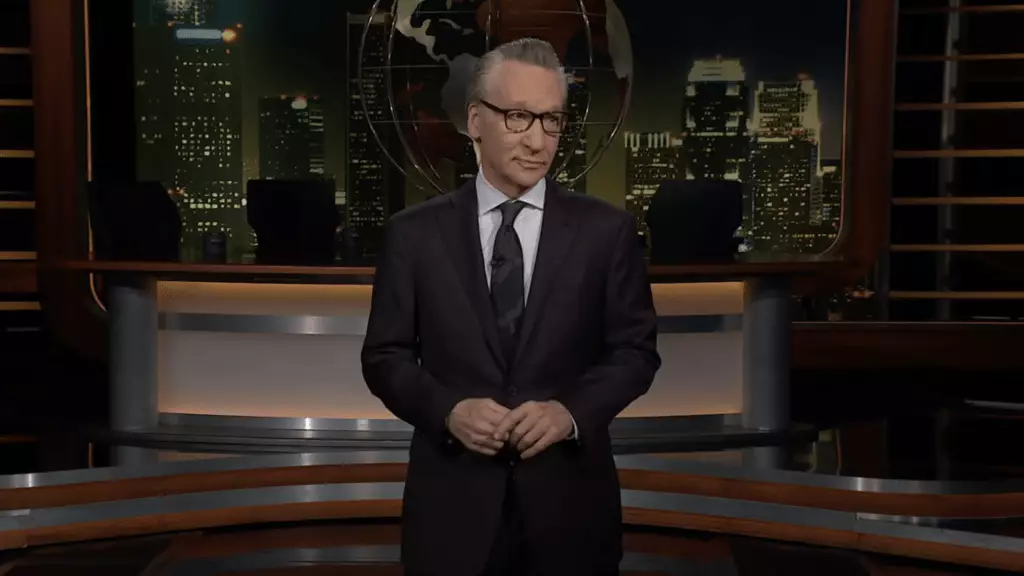The recent rally held by Donald Trump at Madison Square Garden sparked discussions about the intersection of comedy and politics. With the political landscape becoming increasingly polarized, the choice of entertainment at such events is scrutinized more than ever. In a society that values freedom of expression, one would assume that humor—especially when delivered by a comedian—would serve as a unifying force. However, the nature and content of the comedy presented at Trump’s rally reveal a darker undercurrent, where humor becomes a weapon of division rather than a bridge for understanding.
Bill Maher, a prominent figure in the realm of political commentary and comedy, weighed in on the incident, specifically highlighting the performance of comedian Tony Hinchcliffe. His routine, which included highly derogatory remarks about Puerto Rico, underscores the troubling trend of using humor as a vehicle for mockery in politically charged environments. Maher aptly noted the absurdity of hiring an insult comic at a rally meant to rally together supporters. Rather than fostering unity, the comedian’s performance added a layer of hostility that not only offended but also alienated segments of the audience who might have been expecting a more traditional political discourse.
Maher’s observation that the rally attendees seemed unamused by the insults directed towards Puerto Rico further illustrates how this type of humor can backfire. The crowd’s expectation to hear from Trump, rather than a “vicious” comedian, emphasizes the need for a nuanced understanding of humor’s role in political events. Insult comedy, rather than being a catalyst for laughter and camaraderie, reflects a broader cultural divide that risks deepening existing rifts.
The reaction from both the political elite and the public highlights a glaring contradiction: humor is often weaponized in political discourse yet criticized when turned back on the aggressors. Maher expressed concern that the Democrats appeared weak for taking offense at Hinchcliffe’s joke, suggesting that by not being able to handle the banter, they undermined their own position. This notion of political “snowflakism”—applied equally to both sides—brings to light the delicate balancing act comedians perform in the world of political satire. While comedy can be a means of critique and debate, it also risks trivializing substantial issues when wielded carelessly.
Concerns over perceived weakness or overreaction in the political sphere bring forth another layer of complexity. Reflecting on President Biden’s earlier statements about Trump supporters, one could argue that humor’s role in politics is not only about delivering a punchline but also about navigating a minefield of sensitivities. In an environment where a joke can ignite outrage, the imperative to communicate effectively while also standing firm on one’s principles becomes a convoluted task.
In stark contrast to the divisive rhetoric witnessed at Trump’s rally, Vice President Kamala Harris recently delivered a compelling speech emphasizing unity and common ground. Her passionate plea for dialogue and collaboration is a reminder that amidst the noise of insult-laden performances, there remains a space for uplifting discourse. Harris’s assertion that differing opinions do not equate to enmity offers a refreshing perspective in a climate increasingly drained of civility.
Moreover, her emphasis on “seeking common ground” resonates with the deeper desire for a respectful political dialogue that transcends partisan lines. The call for constructive engagement rather than personal attacks serves as a critical reminder that laughter, when used correctly, can foster understanding instead of causing division.
As political events continue to unfold, the implications of how humor is used will remain crucial. The challenge lies in fostering a comedic environment that criticizes and enlightens without succumbing to barbs that deepen divides. This moment underscores a pivotal question: can comedy reclaim its status as a unifier in politics, or will it devolve further into an instrument of division? Moving forward, the demand for comedy that promotes reflection over ridicule is not only preferable but necessary for a healthier political landscape.
The use of humor in politically charged environments can serve both as a double-edged sword and a potential salve for discontent. As society navigates this tumultuous terrain, striking a balance is imperative—not just for comedians, but for all engaged in the dialogue of democracy.
